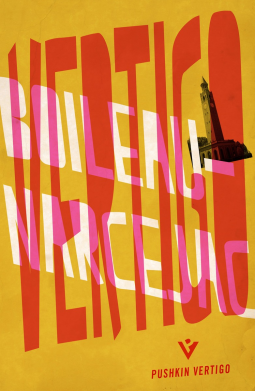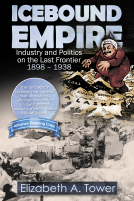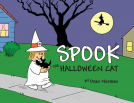
Vertigo
by Pierre Boileau; Thomas Narcejac; Geoffrey Sainsbury
This title was previously available on NetGalley and is now archived.
Send NetGalley books directly to your Kindle or Kindle app
1
To read on a Kindle or Kindle app, please add kindle@netgalley.com as an approved email address to receive files in your Amazon account. Click here for step-by-step instructions.
2
Also find your Kindle email address within your Amazon account, and enter it here.
Pub Date Sep 15 2015 | Archive Date Aug 11 2015
Pushkin Press | Pushkin Vertigo
Description
It could have happened to any of us, but it happened to a man named Flavieres. His days as a detective were over, and everyone knew he had his reasons. But when an old friend appeared out of nowhere with concerns about his withdrawn and mysterious wife, Flavieres didn't have the heart to refuse. Soon, he would be scouring the streets of Paris in search of an answer—in search of a girl who belonged to no one, not even to herself. Intrigue would be replaced by obsession, and dreams replaced by nightmares.
This is the story of a desperate man. A man who ended up compromising his own morality beyond all measure, while World War II raged outside his front door. A man tormented—and destroyed—by a dark, terrible secret.
Available Editions
| EDITION | Other Format |
| ISBN | 9781782270805 |
| PRICE | $13.95 (USD) |
Average rating from 19 members
Featured Reviews
 Educator 211653
Educator 211653
Thank you Net Galley. I had seen the film a long time ago and wanted to read the book. I enjoyed it. It is a fun read on its own. I do not want to compare the two works as they are different media. I enjoyed the book very much and strongly recommend it.
 Daniela T, Reviewer
Daniela T, Reviewer
I haven’t watched the movie adaptation by Hitchcock, so I loved being able to read this book without any kind of information beforehand. I must admit that I wasn’t sure about the book right until the end. On the one hand, I hated Flavières, and that fact made it really difficult for me to keep on reading. On the other hand, I really wanted to know what was going on with Madeleine! It was so frustrating! The ending was not surprising at all, but it was incredibly ironic, and for that, I give the book five stars. As for the translation itself, I thought it was a bit odd that the translator had left some phrases and sentences in their original French. While I understand his/her decisions, I’d prefer to have some footnotes explaining their meaning.
 Leah G, Reviewer
Leah G, Reviewer
From among the dead... 5 stars
As Paris waits uneasily for war to begin, Roger Flavières is approached by an old college friend, Gévigne, who puts an odd proposition to him. Gévigne is concerned about his wife, Madeleine. She has been lapsing into odd silences, almost trances, and seems bewildered when she comes out of them. Gévigne knows she's been going out during the afternoons but she says she hasn't – either she is lying, which Gévigne doesn't believe, or she has forgotten. Gévigne wants Flavières to follow her, partly to find out what she's doing and partly to make sure she is safe. Flavières assumes she is having an affair, but eventually agrees to Gévigne's request. But a few days later, Madeleine steps quietly into the river and Flavières has to rescue her – a meeting that leads to him developing a strange obsession for her, which he calls love.
This is, of course, the book on which the famous Hitchcock film is based, a film I have always admired more than enjoyed, partly because I'm not a huge fan of Kim Novak. The plot is very similar to the book, though Hitchcock has changed the emphasis to make more of the vertigo aspect. Apparently the book was originally called D'entre les morts (From Among the Dead), and this is a much more apt title. Flavières does suffer from vertigo and this was the cause of him being indirectly responsible for the death of his partner when he worked for the police, and also provides a crucial plot point later on in the book. But the focus of the book is much more on the breakdown of Flavières' hold on reality as he comes to believe that Madeleine has the ability to return, like Eurydice, from the dead.
The book is set in wartime, with the first section taking place in Paris just as the war is beginning and the second part four years later in Marseilles as it is heading towards its end. This gives a feeling of disruption and displacement which is entirely missing from the film, set as it is in peacetime America. It is impossible for Flavières to track Madeleine's past because records have been destroyed, and people are constantly on the move, both physically and socially, as black marketeers and weapons manufacturers grow wealthy and those who can, leave the parts of France most affected by war. Flavières failed the medical for the army, for reasons left deliberately rather vague, and feels he is despised by strangers who see an apparently fit man avoiding service.
Another major difference is that in the book Flavières is a loner – or, at least, alone. He appears to have no friends and gets no fulfilment from his job as a lawyer. In the film, Scottie Ferguson (the Flavières character) has a devoted friend in Midge Wood, and is an all-round decent chap, although guilt-ridden. Flavières is not a decent chap! He is a weak man, pitiable almost, whose obsession with Madeleine seems like an extension of an already unstable mental state rather than the cause of it. As the book progresses, he steadily disintegrates, and his behaviour becomes ever more disturbing and crueller towards Madeleine for not admitting to being who he thinks she is.
The book is very well written, and well translated for the most part, although with an annoying tendency to leave some phrases untranslated, such as names of paintings or institutions, meaning I had to resort to Google from time to time to catch a nuance that a translation would have made clear. Apparently, according to the notes in the book, Boileau and Narcejac wanted to create a new style of mystery, away from the standard fare of whodunnits and hard-boileds, putting the victim at the centre of the plot. Boileau was responsible for coming up with the plots while Narcejac created the characterisations. In my view, a partnership that worked brilliantly – the plot of this is fiendishly complex, and Flavières' character is a wonderful study of the effect of obsession on a weak mind. Overall I thought it was much darker than the film, mainly because Flavières may be a victim but there is no attempt to make him out as a good guy - an example of how to write an unlikeable character in such a way as to make him fascinating. The beginning is somewhat slow but I suspect that may be because I knew the plot from the film. As it begins to diverge in the second half I found it completely riveting as it drove inexorably towards its darkly satisfying ending.
Unusually for a Hitchcock film, I think the book actually delves more deeply into the psychology and makes it more credible. Hitchcock's decision to elevate the importance of the vertigo aspects somehow makes his Ferguson a less complex and intriguing character than Boileau-Narcejac's Flavières. And the ending of the book is much more satisfying than that of the film. For once, despite my abiding love for Mr Hitchcock, on this occasion the victory goes to the book!
NB This book was provided for review by the publisher, Pushkin Press.
 Karen C, Reviewer
Karen C, Reviewer
Being a huge Hitchock fan this book particularly intrigued, but even if you’ve never seen a single Hitchcock film in your life, VERTIGO is an engaging, fascinating, and frequently beautiful book. If you are also a fan of the film, then there is greater nuance here than the film, and plenty to conjecture about for the reader.
Set at the start of World War II, the central character of Flavières is troubled by many things, not just the need at one point to flee the war’s encroachment. He seems, on the face of it, a man who was destined to be obsessed with the wife of his friend. Her behaviour whilst mysterious, is mesmerising and her beauty in the eyes of Flavières incomparable. His obsession and the moral dilemmas presented to him by her husband’s insistence that he continue the friendship are understated, yet beautifully illustrated.
The reasons posited for her behaviour are unexpected and yet oddly believable, but nothing is ever that straight-forward and VERTIGO delivers some twists and turns and stings in the tail that make it end up sitting somewhere between a mystery and a morality play.
Beautifully translated with nary a bump to be detected in the language, VERTIGO is complicated, clever and another of those wonderful, one sitting reading experiences.












